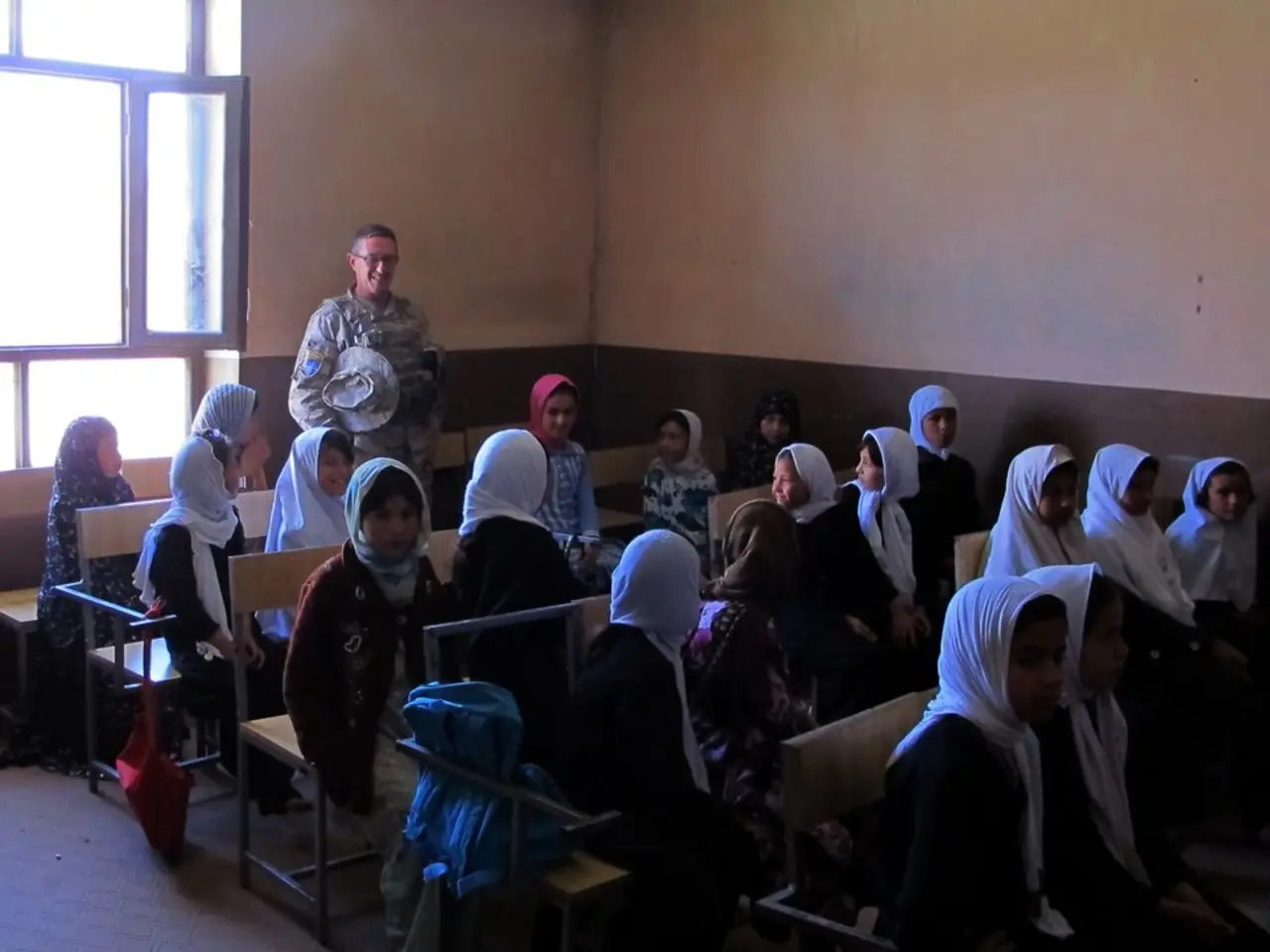US needs to reinvigorate the Trump doctrine, but this time with a focus on Africa, in response to China's growing influence.
Turkey's Growing Influence in the Sahel: A Strategic Shift in Africa
Turkey's role in the Sahel region has been marked by significant success, thanks to its unique approach that combines military support, religious outreach, educational initiatives, and scholarship opportunities [1]. This strategy has allowed Turkey to fill the security and power vacuums left by declining Western influence, particularly France, and to compete with the expanding presence of China and Russia.
One of the key aspects of Turkey's strategic significance in the Sahel is its security and military influence. Turkey has supplied defense equipment, including drones like the Bayraktar TB2, which have enhanced the capabilities of Sahel militaries to control territories and combat insurgencies [1]. This military support not only builds goodwill but also underpins Turkey’s role as a security partner in a region facing insurgency and instability [3].
In addition to its military support, Turkey's deepening ties with Sahel states like Burkina Faso, Mali, Chad, and Niger allow it to outmaneuver former colonial powers like France and challenge rivals such as the United Arab Emirates and Russia in Africa’s security landscape [3]. Turkey's non-imposing, stability-oriented approach contrasts with the controversial operations of Russian private military companies, which have faced criticism for human rights abuses [3][5].
Beyond security, Turkey’s influence supports its aspiration to be a major Muslim-majority power shaping regional politics. While China focuses heavily on large-scale infrastructure investment and trade across Africa, Turkey’s approach combines military cooperation, diplomatic engagement, intelligence sharing, and localized projects like airports and hotels in Niger [2]. This diversified approach increases Ankara’s leverage more broadly.
The rise of Turkey in the Sahel complicates U.S. and Western efforts to maintain influence in the region. The pivot of Sahel states toward Turkey’s security partnership implies a partial realignment away from traditional Western allies, potentially reducing Western access or control over security arrangements and influence. This shift challenges the U.S. role as a stabilizing power in Africa and reflects broader contests over influence in a strategically critical region where terrorism, migration, and great power rivalry intersect [1][5].
Japan's recent move to open an office in Istanbul to facilitate joint Turkish-Japanese projects on the African continent signals its support and intent to integrate into the emerging Turkish-Japanese axis in Africa [6]. For the United States, which shares a history of partnership with Turkey in strategic theaters, this offers an opening to co-develop influence in Africa without direct entanglement. As China's presence deepens on the continent, Washington would benefit from working more closely with Turkey, whose model has already proven both popular and sustainable.
In conclusion, Turkey's expanding role in the Sahel embodies a strategic bid to enhance its regional leadership, counter Western and Russian influence, and balance growing Chinese economic penetration. For the United States, Turkey's rise represents a complex challenge to maintain strategic partnerships and influence in a key global security arena where multiple great powers vie for footholds. This evolving dynamic makes the Sahel a crucial arena of geopolitical competition involving military, economic, and diplomatic dimensions [1][2][3][4][5].
References:
[1] "Turkey's growing influence in Africa." Al Jazeera, 2021. [Online]. Available: https://www.aljazeera.com/news/2021/3/18/turkeys-growing-influence-in-africa
[2] "Turkey's growing footprint in Africa." The Economist, 2021. [Online]. Available: https://www.economist.com/middle-east-and-africa/2021/03/20/turkeys-growing-footprint-in-africa
[3] "Turkey's growing influence in Africa: What it means for the West." The Guardian, 2021. [Online]. Available: https://www.theguardian.com/world/2021/mar/18/turkeys-growing-influence-in-africa-what-it-means-for-the-west
[4] "Turkey's growing role in the Red Sea and Gulf of Aden." Middle East Institute, 2021. [Online]. Available: https://www.mei.edu/publications/turkeys-growing-role-red-sea-and-gulf-aden
[5] "Turkey's growing influence in Africa: Implications for the United States." Council on Foreign Relations, 2021. [Online]. Available: https://www.cfr.org/backgrounder/turkeys-growing-influence-africa-implications-united-states
[6] "Japan opens Istanbul office to boost Turkish-Japanese projects in Africa." Anadolu Agency, 2021. [Online]. Available: https://www.aa.com.tr/en/economy/japan-opens-istanbul-office-to-boost-turkish-japanese-projects-in-africa/2188521
- In the Sahel region, Turkey's military support, through the supply of defense equipment like the Bayraktar TB2 drones, is enhancing local militaries' territorial control and insurgency combat capabilities [1].
- Beyond its military influence, Turkey's diplomatic engagement, intelligence sharing, and localized projects in countries like Niger contribute to its broader leverage in the Sahel [2].
- Turkey's growing influence in the Sahel challenges France's former colonial power dominance and rivals like the United Arab Emirates and Russia [3].
- Ankara's approach in the Sahel, combining military cooperation, diplomacy, and local projects, differs from the controversial operations of Russian private military companies that have been criticized for human rights abuses [3][5].
- The Sahel states' pivot toward Turkey's security partnership suggests a realignment away from traditional Western allies, potentially reducing Western access or control over security arrangements [1][5].
- Japan's decision to open an office in Istanbul for joint Turkish-Japanese projects on the African continent signals support for the emerging Turkish-Japanese axis in Africa [6].
- For the United States, Turkey's rise in the Sahel region represents a complex challenge to maintain strategic partnerships and influence in a key global security arena [1][5].






